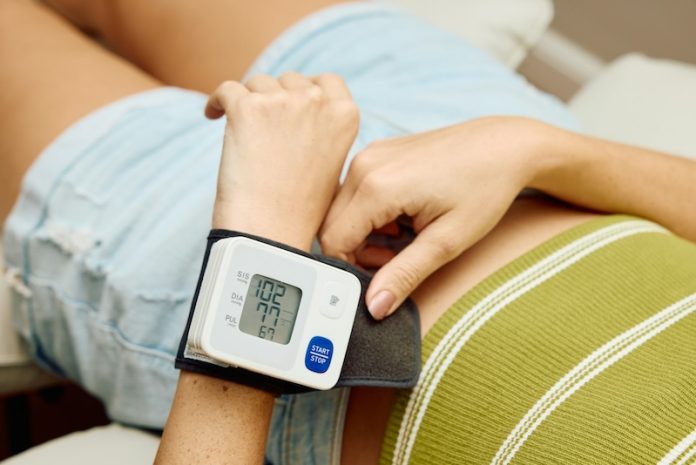
When it comes to monitoring blood pressure, most people focus on the top number, known as systolic blood pressure, as it’s widely regarded as the primary indicator of heart disease risk.
However, recent research from the University of Miami suggests that the bottom number, or diastolic blood pressure, could be just as crucial, particularly in evaluating the risk of brain lesions that may lead to dementia, stroke, or falls.
Blood pressure readings consist of two numbers: the systolic pressure (the top number) measures the force of blood against artery walls when the heart beats, while the diastolic pressure (the bottom number) measures this force when the heart is at rest between beats.
According to guidelines from the American College of Cardiology and the American Heart Association (AHA), a diastolic blood pressure reading of 80 or higher is considered high.
In this study, the researchers explored the relationship between diastolic blood pressure and the presence of brain lesions, specifically white matter lesions, which are small scars in the brain.
These lesions, visible on MRI scans, can interfere with nerve signals that control muscle movement, sensation, and cognitive functions like thinking and memory. Over time, these disruptions increase the risk of falls, stroke, and cognitive decline.
The study involved 1,205 adults aged 50 and older. The researchers found that participants with lower diastolic blood pressure had fewer white matter lesions in three critical regions of the brain compared to those with higher diastolic readings.
Notably, people with diastolic pressure below 80 had significantly fewer lesions than those with diastolic pressure above 90.
While previous research has highlighted the role of high systolic blood pressure in narrowing arteries, which can lead to these lesions, this study underscores the importance of diastolic pressure as well.
The findings suggest that maintaining a diastolic blood pressure below 80 may help reduce the formation of these harmful brain scars.
White matter in the brain consists of nerve fibers that transmit signals between different regions of the brain and the rest of the body. When lesions develop in this white matter, they can block these signals, leading to difficulties with movement, balance, and cognitive functions.
By the age of 60, between 10% and 20% of people develop these lesions, and they become even more common in older adults, with most people over 90 showing some degree of white matter damage.
The study’s authors pointed out that different regions of the brain are supplied by different blood vessels, meaning that blood pressure and other factors can affect these regions in various ways.
They also noted that lesions in the periventricular region—a specific area of the brain—are particularly concerning because they are more strongly linked to cognitive problems.
This research highlights the importance of monitoring not just systolic but also diastolic blood pressure to better understand and manage the risks associated with brain lesions.
As white matter lesions are closely connected to serious health issues like dementia and stroke, understanding how blood pressure influences their development is crucial for both prevention and treatment.
The study, led by Michelle R. Caunca and published in the journal Stroke, adds to the growing body of evidence that maintaining healthy blood pressure is vital for overall brain health.
It serves as a reminder to regularly check your blood pressure and discuss with your doctor the best ways to manage it, whether through lifestyle changes, medication, or a combination of both.
For those concerned about blood pressure, additional studies suggest that certain lifestyle choices, such as incorporating olive oil into your diet, may help reduce blood pressure.
There’s also ongoing research into how specific vitamins, like vitamin B, could play a role in treating drug-resistant high blood pressure.
As our understanding of blood pressure’s impact on brain health continues to evolve, staying informed and proactive in managing your blood pressure is more important than ever.
If you care about high blood pressure, please read studies that early time-restricted eating could help improve blood pressure, and natural coconut sugar could help reduce blood pressure and artery stiffness.
For more information about blood pressure, please see recent studies about added sugar in your diet linked to higher blood pressure, and results showing vitamin D could improve blood pressure in people with diabetes.
Copyright © 2024 Knowridge Science Report. All rights reserved.



